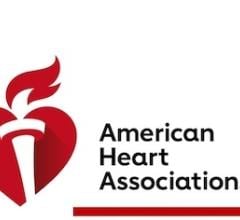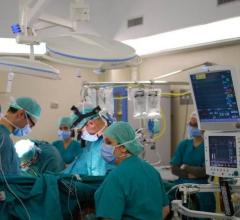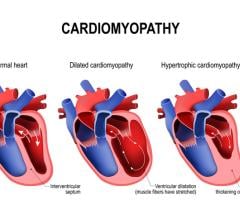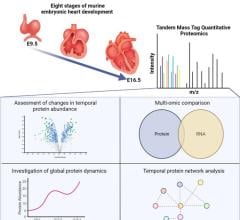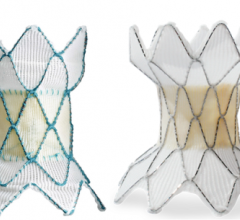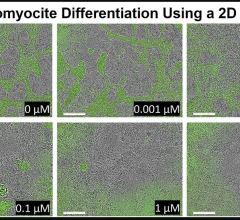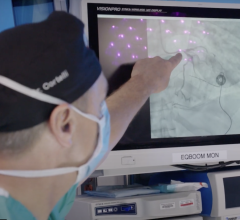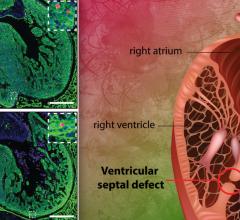
May 16, 2014 — Fetal heart experts working with the American Heart Assn. have developed guidelines to help healthcare providers care for unborn babies with heart problems, as well as their families.
The statement, Diagnosis and Treatment of Fetal Cardiac Disease, is published in the American Heart Assn. journal, Circulation.
"Congenital heart disease is the most common birth defect that can result in either death or significant health problems in newborn babies," said Mary T. Donofrio, M.D., lead writer of the statement, and director of the Fetal Heart Program and Critical Care Delivery Service at Children's National Medical Center, in Washington, D.C.
Fetal care is no longer solely the realm of high-risk obstetricians and neonatologists. A multidisciplinary specialty of fetal cardiology has emerged, according to the statement.
"We now have advanced imaging technologies, such as high-resolution ultrasound and three- and four-dimensional echocardiography, magnetic resonance imaging, fetal electrocardiography and magnetocardiography enabling physicians to diagnose fetal abnormalities early and with better detail and accuracy,” she said.
"Despite this, more than half of babies with congenital heart disease go undiagnosed before birth," she said. "We created these guidelines to provide pediatric cardiologists, obstetricians, maternal fetal specialists, radiologists, nurses and other healthcare providers with the latest developments in the rapidly developing area of fetal cardiology," Donofrio said.
Among the recommendations in the statement:
- Pregnant women with specific risk factors should be referred for fetal echocardiography, a technology that uses sound waves to examine the fetal heart. Women at risk include those who have had diabetes before pregnancy, diabetes diagnosed in the first trimester, have taken NSAIDs in their third trimester, have congenital heart disease or a close relative with congenital heart disease, or other specific maternal medical conditions, and possibly those who conceived with in vitro fertilization. Fetuses at risk include those identified with a chromosome problem or other abnormality, or those with a suspected heart problem. Fetuses diagnosed with a heart abnormality should be carefully monitored and healthcare providers should plan the delivery and post-delivery care that the baby will need.
- Some fetal heart rhythm disturbances or heart function abnormalities can be treated with medicines given to the mother, which cross the placenta to reach the fetus. In-utero heart catheterization and surgical procedures are being performed, however are still considered experimental.
The psychological effects and depression that may result when a pregnant woman and her family learns that their child has a congenital heart abnormality are also important factors for healthcare providers to consider. Parents often grieve upon learning that their unborn baby has a congenital heart condition. The authors note that it's important for providers to offer families information in an unbiased way, which not only addresses the condition and what is involved in treatment, but also whether children will be able to play sports, do well in school, and what kind of support they might need, physically and mentally. In addition, providers should help families overcome anxiety and depression, so they can transition from grief to acceptance and become active members of the team that care for their baby.
"This document transcends specialties and gives all healthcare providers that practice fetal cardiac medicine a standard for practice. This means improved care for babies with congenital heart disease, starting in the womb and continuing after delivery and through their lives," said Donofrio.
For information: www.heart.org, www.strokeassociation.org


 March 31, 2025
March 31, 2025 
